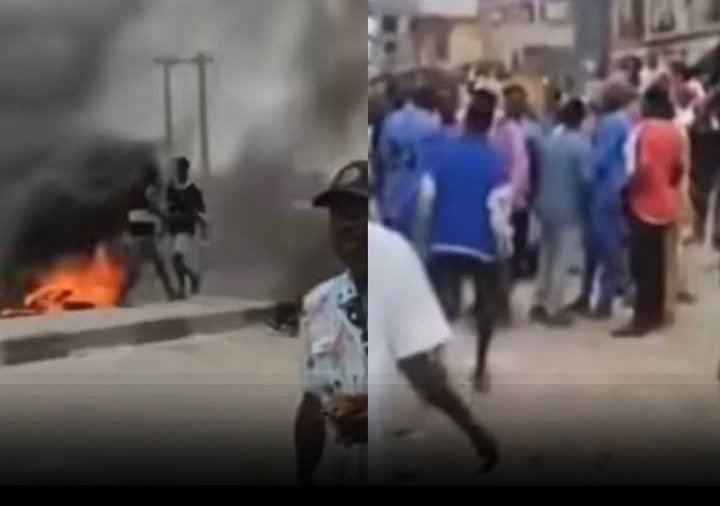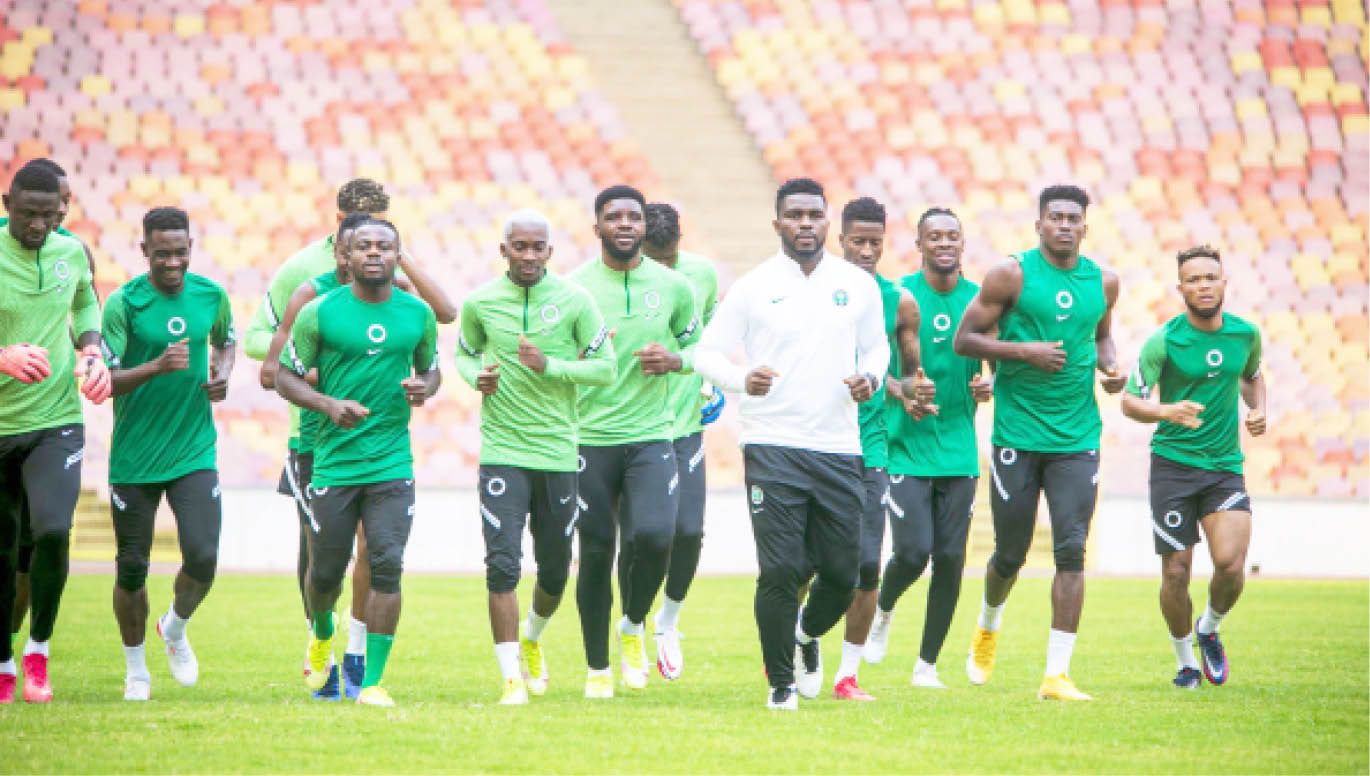
Chaos in Lagos: Protests Rock Ijebu-Lekki-Ajah Expressway After Policeman Allegedly Guns Down Commercial Motorcyclist

The bustling city of Lagos was thrown into chaos as protests erupted on the Ijebu-Lekki-Ajah expressway following reports that a policeman allegedly shot and killed a commercial motorcyclist in a tragic incident that has now spiraled into anger, outrage, and demands for justice. Eyewitnesses and residents narrated that the confrontation began late at night when officers reportedly attempted to seize motorcycles from riders in the area, sparking a violent clash that has left one person dead on the spot and others battling for their lives in the hospital. The already tense relationship between security operatives and commercial motorcyclists, popularly known as okada riders, took another tragic turn as blood was spilled in what many have described as another instance of abuse of power and disregard for human life.
According to a witness at the scene, the officers were accused of not only attempting to enforce the ban on motorcycles along certain routes but also of extortion and outright theft. “A Nigeria police killed three bike men after trying to steal their bikes from them at night. The bike men refused and the police shot them, killing one instantly while the other two were rushed to the hospital but did not survive,” he claimed, his voice thick with rage as he showed evidence of the carnage. A chilling video that surfaced showed the lifeless body of a victim placed inside a vehicle, a gruesome reminder of how fragile life has become under the weight of violence and impunity. The eyewitness described the situation as heartbreaking and unnecessary, lamenting that law enforcement, instead of protecting lives, had once again turned their weapons against innocent citizens.
The killings immediately sparked an outpour of anger as youths and motorcyclists gathered in their hundreds to resist what they called oppression. Armed with placards, sticks, and stones, they blocked sections of the busy Ijebu-Lekki-Ajah expressway, chanting slogans and demanding that justice be served. The atmosphere was charged, with smoke filling the air as bonfires were lit along the road. Commuters were stranded for hours, with many forced to abandon their journeys in fear of being caught in the middle of the unrest. The expressway, which serves as a vital artery linking various communities in the Lekki and Ajah axis, became a battlefield of frustration and defiance as residents decried the actions of the police. “We cannot continue like this,” shouted one of the protesters. “Every day we are harassed, beaten, and extorted. Today they killed one of us, tomorrow it could be anyone. Enough is enough.”
This latest tragedy has rekindled painful memories of previous encounters between law enforcement and civilians in Lagos, particularly the scars of the EndSARS protests that rocked Nigeria in 2020. Many protesters drew parallels between the present incident and the historical abuses that fueled nationwide demonstrations against police brutality, extortion, and extrajudicial killings. “It is the same pattern,” said a resident. “They harass people for money, and if you don’t comply, they threaten you with guns. Now, people are dead because they stood their ground. Is this how we are supposed to live in a democracy?” The outrage reflects not only anger over the specific killing but also deep-seated frustrations about the unchecked powers of security forces and the lack of accountability mechanisms to curb their excesses.
The Lagos State Police Command has yet to release an official statement addressing the allegations, but the silence has only deepened suspicions among the public. Many fear that without immediate action from the authorities, the incident could escalate into wider unrest. Already, social media platforms have been flooded with videos and photos of the protest, drawing both sympathy and anger from Nigerians across the country. Hashtags demanding justice for the slain motorcyclist have begun to trend, with netizens urging human rights organizations, legal bodies, and the state government to step in and ensure that the officers involved face the full weight of the law.
Meanwhile, residents in the Lekki-Ajah corridor have expressed concerns over their safety as the protest threatens to grow beyond control. Parents hurriedly withdrew their children from schools, businesses shut down, and public transportation was crippled as the protests intensified. Those who managed to escape the traffic lock jam recounted how they were forced to trek long distances under the scorching sun just to find alternative routes home. The fear of reprisal attacks looms large, as angry youths have vowed not to relent until justice is delivered. Some even threatened to storm police stations in the area, raising concerns about possible violent clashes between protesters and law enforcement.
Security analysts have warned that incidents like these erode public trust in the police and further alienate communities that already feel marginalized and targeted. Commercial motorcyclists, despite the restrictions placed on their operations in Lagos, have remained a lifeline for many residents who rely on them for quick and affordable transportation. However, they are also among the most vulnerable groups, often subjected to harassment, extortion, and sudden crackdowns by authorities. The latest killing has only heightened the sense of injustice within the community, as riders feel hunted rather than protected. “These are young men struggling to survive,” said a community leader who addressed the crowd during the protest. “Instead of creating job opportunities, the government sends police to oppress them. Now they are dead. How do we explain this to their families?”
The protests have also reignited debates about the regulation of commercial motorcycles in Lagos State. While the government insists that the restrictions are necessary to reduce accidents and crime, critics argue that the approach has been heavy-handed, with little consideration for the livelihoods of thousands of riders. The absence of clear alternatives for those displaced by the bans has created fertile ground for clashes between okada riders and the police. The latest incident, many believe, is the direct consequence of policies that prioritize control over dialogue. Calls are now growing louder for a more humane approach that balances regulation with respect for human dignity and the right to livelihood.
As night fell on Lagos, the protests showed no signs of abating. The once-busy Ijebu-Lekki-Ajah expressway remained littered with debris, burnt tires, and remnants of the day’s chaos. Security operatives were deployed to restore order, but the heavy presence of armed personnel only added to the tension, with protesters vowing to resist intimidation. The community has demanded the immediate arrest and prosecution of the officer responsible for the shooting, warning that failure to act swiftly could trigger more violence. Families of the victims, meanwhile, are left to mourn their losses in grief and bitterness, their pain echoing through a city already weary of bloodshed.
The unfolding events on the Lekki-Ajah corridor serve as yet another stark reminder of the fragile state of police-citizen relations in Nigeria. Each new case of brutality chips away at the fragile trust that remains, leaving behind wounds that are slow to heal. For many Lagosians, the question is no longer whether justice will be served, but whether the cycle of violence will ever end. Until real reforms are implemented, and accountability becomes the standard rather than the exception, tragedies like this will continue to repeat themselves, leaving in their wake grief, anger, and a city perpetually on edge.


